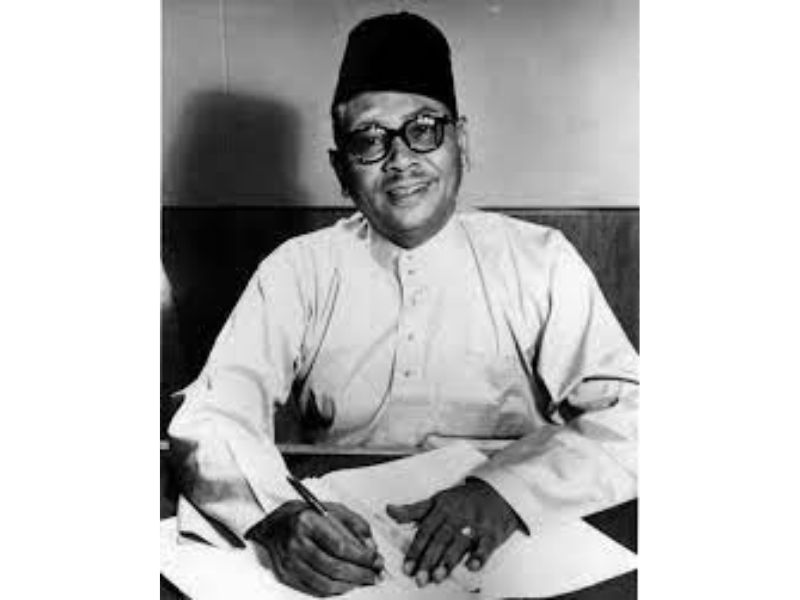Labour Day: Are Lawyers Entitled to the Public Holiday?
by Jason Yong Kok Yew ~ 28 April 2021
On the 20th of May 1972, Malaysia’s first Prime Minister, Tunku Abdul Rahman announced 1st May as a public holiday for workers while he was officiating the Labour Bureau Trade Union Seminar and the UMNO Trade Union at Dewan Belia, Kampung Pandan, Kuala Lumpur. This marks the beginning of the Labour Day celebration in our country.
Since then, Labour Day has become one of the mandatory paid holidays employers are required to grant to all employees under the ambit of the Employment Act 1955 (“EA 1955”). [see: Section 60D(1)(a) EA 1955]

The decision for such declaration was said to be made with the hope that the labour movement would perceive May 1 as a day dedicated to workers, which befits national aspirations. The announcement, apart from recognising the contribution of workers, also projected the sentiments that Malaysia is in agreement with the decisions of the International Labour Organisation (ILO) Convention which approved May 1 as Labour Day or May Day.
Labour Rights and Labour Day
Labour Day has its origins in the labour union movement, especially the ‘8 hour day’ movement, rallying around the principle of ‘8 hours of work, 8 hours of play, and 8 hours of sleep’. Labour Day is celebrated on different dates around the world, often one with special significance for the labour movement in that country. The day has been declared a public holiday in more than 100 countries around the world.
Throughout history, workers around the world have attempted to pursue their interest in some sort of right. During the Middle Ages, the Peasants' Revolt in England expressed demand for better wages and working conditions. One of the leaders of the revolt, John Ball famously argued that people were born equal saying,
"When Adam delved and Eve span, who was then the gentleman?"
Subsequently, the British Parliament passed the Factory Act 1833 which stated that children under the age of 9 could not work, children aged 9–13 could only work 8 hours a day, and children aged 14–18 could only work for 12 hours a day.
The concept of labour rights is a modern one, dating back to the 19th century after the creation of labor unions following the industrialization processes. At the height of labour rights advocacy around the world, the International Labour Organisation (ILO) was formed in 1919 as part of the League of Nations to protect worker's rights. The ILO later became incorporated into the United Nations. The UN itself backed workers rights by incorporating several into two articles of the Universal Declaration of Human Rights, which is the basis of the International Covenant on Economic, Social and Cultural Rights (article 6–8). These read:
Article 23
- Everyone has the right to work, to free choice of employment, to just and favorable conditions of work and to protection against unemployment.
- Everyone, without any discrimination, has the right to equal pay for equal work.
- Everyone who works has the right to just and favorable remuneration ensuring for himself and his family an existence worthy of human dignity, and supplemented, if necessary, by other means of social protection.
- Everyone has the right to form and to join trade unions for the protection of his/her interests.
Article 24
- Everyone has the right to rest and leisure, including reasonable limitation of working hours and periodic holidays with pay.
Since the recognition of Labour Day as a celebration of labour rights and workers’ contribution globally, countries that have gazetted the day as a public holiday are today celebrating its significance in various fashion, from elaborate parades to homey barbeques.
However, Labour Day as a gazetted public holiday does not apply to all employees equally here in our backyard.
‘Same Same, But Different’
Did you know that employees who are not covered under the ambit of the EA 1955 are technically not entitled to any paid holidays (including Labour Day)?
The reason for this is in the way Malaysian employment legislation is structured. The EA 1955, being the most comprehensive source of employment law in Malaysia, only sets out certain benefits for the following types of employees:
- Employees whose monthly salary does not exceed RM2,000;
- Employees engaged in manual labour, regardless of salary;
- Employees engaged in the operation or maintenance of mechanically propelled vehicles;
- Employees who supervise or oversee other employees engaged in manual labour; and
- Employees engaged in any capacity on a vessel (subject to certain other conditions).
As such, employees who are required to work on any paid holiday are subjected to two days’ wages at the ordinary rate of pay by virtue of section 60 of the EA 1955. Employers have the option to grant employees governed under EA 1955 an off day on any other day to substitute for working on a paid public holiday. Any employer who fails to pay any of his employees wages for work done on a paid public holiday may also be liable to a fine under section 100 of the EA 1955.
For employees who do not fall into any of the above categories, the minimum benefits set out in the EA 1955 (including a minimum of 8 paid holidays a year) are not applicable. Therefore, save for certain statutory requirements such as EPF and SOCSO, the only applicable law enjoyed by non-EA 1955 employees is standard contract law, which is generally ‘anything goes’ as long as it is stated in their employment contract.
Lawyers & Public Holidays
Most lawyers work on a full-time basis. In Malaysia, lawyers are often engaged through contractual arrangements that are renewable subject to the terms of their respective employment contracts.
Save and except for legal professionals governed under the EA 1955, others would likely have experienced working through weekends and public holidays with employment contracts containing terms like:
- “You may be required to work further hours from time to time, as instructed by the Employer.”
- “You may be required to work such additional hours as are necessary for the proper performance of your duties without extra remuneration”
- “You may be required to work such additional hours to fully perform your job in accordance with the needs of the business.”
Despite being one of the fastest growing economies in the world, Asia is also known for its long working hours. In 2017, Malaysia record longer working hours with an average of 12 hours over their contracted hours compared to Australia (see: Jobstreet.com). Despite much-heralded efficiencies offered by new technology, the number of hours lawyers are working is actually increasing, with many regularly clocking in more than 40 hours a week.
A 2016 research conducted by U.K. legal recruiter Laurence Simons found that law firm partners worked an average of 2,622 hours – or 55.75 hours a week – in the year to September 2016, compared to a comparatively leisurely 2,359 hours in the 12 months to September 2014. That’s 263 more hours in the office, and it is safe to presume that the hours include paid public holidays too.
The legal fraternity in different jurisdictions have responded in various fashions to such long working hours, including (i) implementation of 40-hour work week (see: Financial Review), and (ii) unionising the legal industry (see: The Guardian).
Making Time Count
In a nutshell, lawyers should be entitled to public holidays as much as any employees do. The enjoyment of these paid public holidays, however, is a different story.
Longer hours could be a sign that traditional law firms are having to do more to compete with alternative business structures such as the Big Four accountancy firm legal teams. The clear way forward for a more productive and healthier legal industry might just be through continuous innovation, strategic adoption of technology, and staying nimble commercially.

